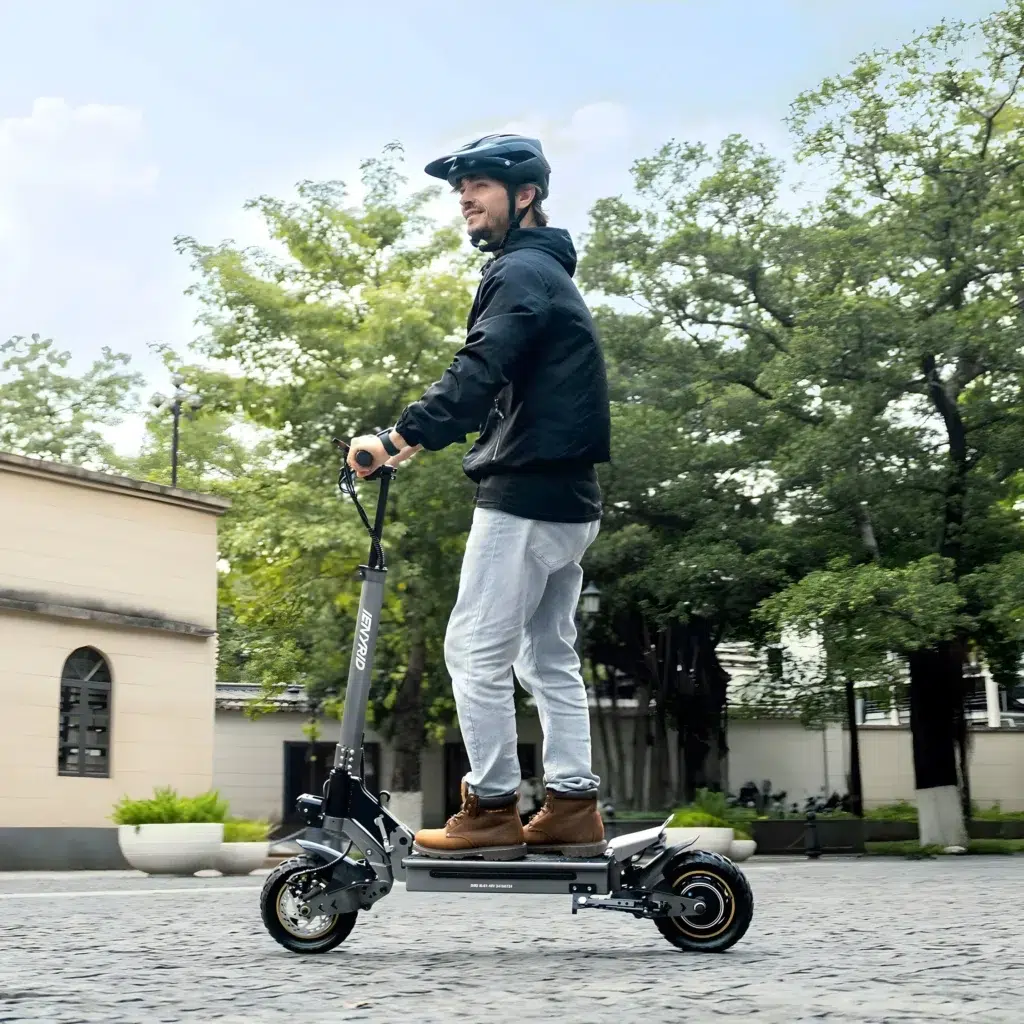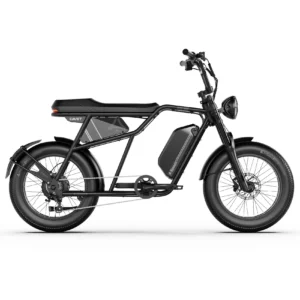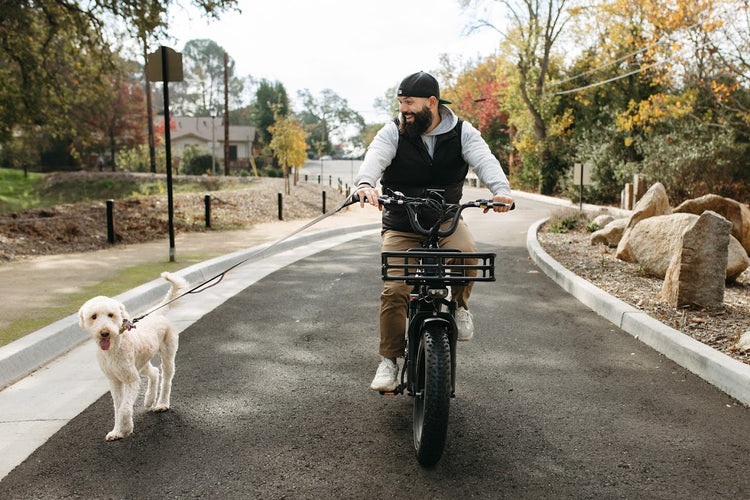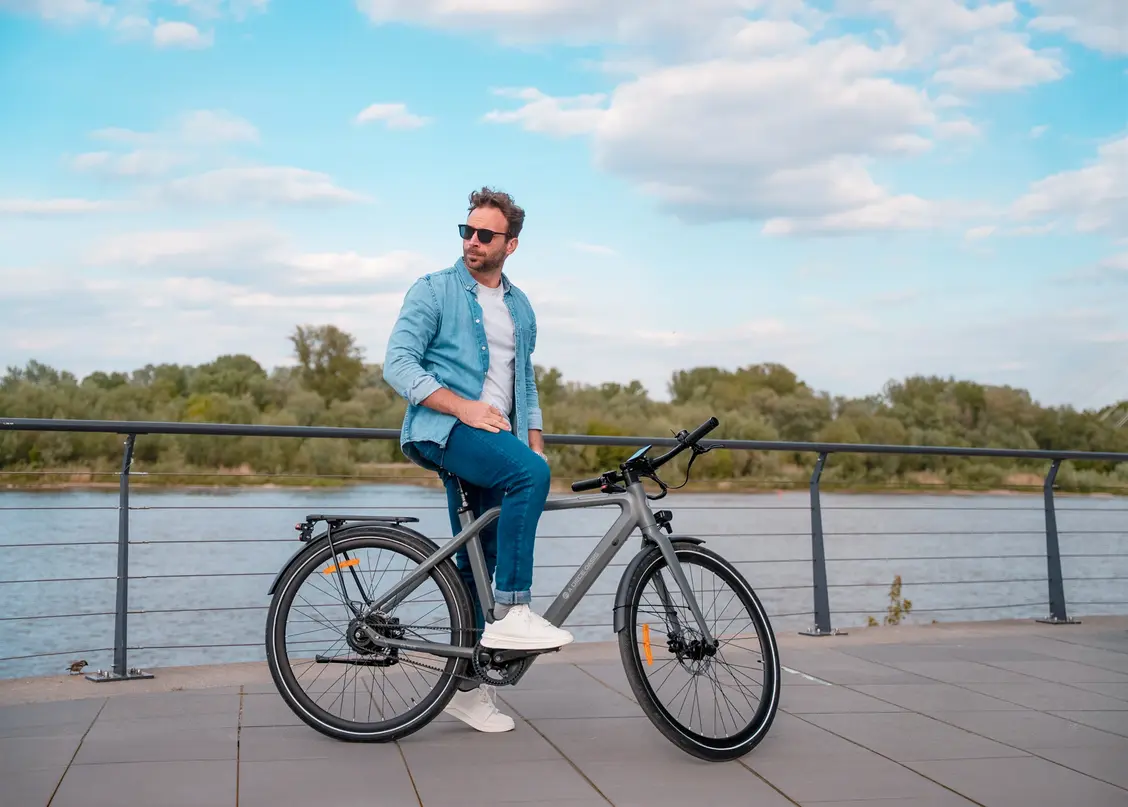Electric scooters, or e-scooters, are becoming a frequent sight on UK roads. Small, easy to operate, and environmentally friendly, they are becoming increasingly popular both privately and for use in an increasing number of city centres across the UK. Yet, despite their popularity, for many, it remains uncertain whether it is legal to use one.
The short answer is this: privately owned electric scooters are not yet legal to ride on public pavements or roads within the UK. That may shock you, especially if you see e-scooters being ridden in cities every day. But the law is more complex than it initially appears.
In this blog, we’ll examine the existing legislation, discuss its purpose, and look ahead to what may evolve over the next few years.

UK Law on Electric Scooters
Currently, it is illegal to ride electric scooters in public areas in the UK except if they are part of a government-backed rental trial. Electric scooters are currently classified as “powered transporters” under existing law, a category that encompasses various types of personal transportation, such as Segways and hoverboards. They are legally treated in the same manner as motor vehicles.
That is, individual e-scooters would have to satisfy a lengthy list of legal conditions before they could be ridden on public roads. They would have to be insured, taxed, registered, and pass safety standards, and their users would require a driving licence. But the issue is that none of these legal conditions yet apply to electric scooters. You can’t register or insure one for road use, so it is technically illegal to ride an individual e-scooter on the road.
It is also illegal to use a personal e-scooter on pavements, footways, or cycle paths. It is illegal under the Highway Act 1835 to use any motorised transport on the pavement. You can be stopped by police, fined, or even have your scooter taken away, even if you are moving very slowly and cautiously.
Private vs Public Scooter Use
When discussing electric scooters, the most widespread cause of confusion is the distinction between legality and roadworthiness. The two terms are usually used loosely and interchangeably, but in fact, they mean very different things, and the difference between them is crucial to remaining on the right side of the law.
An e-scooter can be legal to own, legal to sell, and legal to ride on private land, but not road legal. That’s precisely where we are in the UK right now with privately owned e-scooters.
Legal simply implies that you are permitted to buy, sell, own or ride an electric scooter within some defined conditions, for example, on private property with consent. Rapid Scooter dealerships and people alike are permitted to sell the vehicles, and others can buy and own them without contravening the law. Under such circumstances, nothing is illegal when it pertains to the ownership of an electric scooter or riding it in the right setting.
But road legal is a phrase that refers to a vehicle that is in compliance with all of the legal prerequisites for operation on public roads. This would be things like being registered with the DVLA, insured, technically and safety compliant, and being ridden by an appropriately qualified and aged rider. No privately owned electric scooters in the UK are presently road legal, since there is no official system for them to become road registered or insured.
This is why you can sell a scooter as “legal”, but it doesn’t imply that you can drive it on the road or use it on public land. Only the electric scooters being used under the government-funded rental pilots are presently road legal, and then only in certain areas under controlled conditions.
This legal technicality has led to most riders wrongly assuming that since they spot scooters being ridden on the roads, their scooter is also legal to ride on public roads. Sadly, it is not. It is legal to own a scooter, but illegal to ride it on public pavements or roads.
Privately owned e-scooters will continue to be legal to own but not road legal to ride off private land until the UK government brings in new vehicle laws that are targeted at e-scooters.
Where Can You Ride an E-Scooter?
Though they cannot be ridden on public property, electric scooters are not prohibited altogether. It is legal to ride one on private property if the owner permits you to do so. These areas include private driveways, gardens, industrial estates and certain off-road estates.
You cannot ride a private e-scooter on:
- Public roads
- Pedestrian-only zones or pavements
- Cycle lanes
- Parks, other public rights of way, or towpaths
In short, unless you own private land, use of a privately owned scooter will be radically curtailed by present UK law.
Rental E-Scooter Trials
The sole significant exception to the prohibition on public use is the government-funded rental e-scooter trials. These were launched in 2020 as a component of the UK government’s COVID-19 pandemic response, to provide a socially distanced and greener alternative to travelling by public transport.
Under these trials, local councils with authorised operators (including Voi, Lime and Tier) permit the users to legally hire and use electric scooters on public roads and cycle lanes in electric scooter trial areas. The hired scooters are equipped with safety features and are subject to some rules. For example, the users are required to be a minimum of 16 years old and have a full or provisional driving license.
Scooters involved in the schemes have a speed of 15.5 mph and come equipped with built-in speed limiters, lights, and tracking. Riders are recommended to use helmets, but are not required by law.
These schemes are already running in over 30 UK cities and towns, including London, Birmingham, Bristol, Liverpool, and Milton Keynes. Even here, though, only scooters from the approved hire operators are allowed. Privately owned scooters are still illegal on public land, even if brought into a city where a trial is running.
Penalties & Enforcement
If you are caught illegally riding a private e-scooter, the penalties can be severe. The police forces have also been provided with the power to issue fines, confiscate vehicles, and even prosecute repeated offenders. Riders can be issued a fixed penalty of £300 and six points on their driving license if they are caught riding an uninsured private scooter on the road.
The authorities also have the power to seize scooters where they feel that the law has been broken. There have been periodic enforcement campaigns against illegal scooter usage in some cities, like London. In most instances, the authorities will give a warning before enforcement, but now they are cracking down on individuals who ignore the rules.
It should also be noted that it is possible to cause an accident on a scooter while riding illegally, which can lead to far more serious charges, particularly if someone is hurt. The courts can treat such accidents in the same way they would treat dangerous driving offences in motor vehicles.
Why Are Private E-Scooters Still Illegal?
There are a number of reasons why the law has yet to keep pace with the growing popularity of e-scooters. One of the main concerns is safety. While e-scooters can be an environmentally friendly and effective mode of transport, they can also be a hazard to riders and pedestrians alike, especially in congested city centres.
E-scooters have been involved in accidents, including crashes with cars and tumbling off potholes or uneven roads. The users often ride without helmets or protective gear, and most are unaware of the rules of the road. Without regulation, training, and control, electric scooters can be a public safety hazard.
Legal complexity is another source of delay. Existing law on motor vehicles is not appropriate for today’s personal transportation gadgets. The government has reached that realisation and is now drafting new legislation that would accommodate e-scooters as part of the transport network.
What’s Changing in 2025?
The positive news is that the UK government has made it clear that it is going to legalise privately owned electric scooters shortly. The Department for Transport said in 2022 that it was embarking on establishing a new vehicle class for electric scooters. This would enable the government to bring in new rules, including safety requirements, speed limits, insurance and where they can be ridden.
While no legislation has been enacted yet, the success of the trials and the popularity of scooters make it obvious that change is on the horizon. Most transport commentators think that e-scooters have the potential to reduce congestion, decrease emissions and make short journeys, especially in city centres, easier.
It is foreseen that any legalisation in the future will be accompanied by regulations paralleling those covering rental schemes, such as minimum age requirements, driving licence requirements, and power and speed restrictions. It could even be made mandatory for safety features, including reflectors and lights.
What Should E-Scooter Owners Do Now?
In the event that you have purchased, or intend to purchase, an electric scooter, you must remain cautious and use it within the law. For the time being, at least, the only lawful location to ride a private scooter is on private property. Always seek permission to do this, and look at the possibility of using safety equipment like a helmet and gloves even when you ride inside protected regions.
If you happen to be in an area where there is a rental scheme, it’s well worth attempting one of the government-approved scooters. Not only is this a legal means of sampling the joys of e-scooting, but it also plays a part in the data gathering exercises, which will assist in shaping future law. Be sure to look out for any statements from the Department for Transport and your local authority, who will be the first to post any changes to the legal position.
Conclusion
E-scooters represent a promising revolution in how we think about urban transport. They are nippy, quick, and clean, qualities that are increasingly attractive as we look for cleaner forms of transport. However, the UK’s current legal framework has not yet kept pace with this new technology.
Privately owned e-scooters are still illegal on public roads and areas in the UK. The only scooters permitted are those used in authorised rental trials, and even then, it is only in certain circumstances. The future is promising, with new laws promised within the next few years, but for now, e-scooter usage is limited.
We here at Rapid Scooter believe in responsible and safe riding. Whether you’re riding on private property or holding out for new laws to open up public use, we’re here to offer expert guidance and high-quality scooters to enable you to ride wisely and get ahead.
Visit https://rapidscooter.co.uk for new electric scooters and accessories, and join our updates to know when there are changes in the law.









